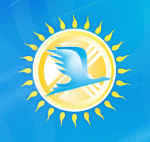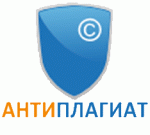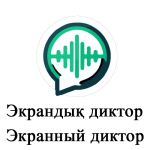Academic policy
University admission
Applicants admitted to the university must successfully master the program of the previous level of education. In selecting potential students, the admissions committee considers the student's previous learning outcomes and academic records, professional experience, maturity, and commitment to the education offered by the university.
Applicants for higher education programs must have a high school certificate or a diploma of vocational and technical education, depending on the type of program for which they applied, as well as a certificate of passing the Unified National Test (UNT) or Comprehensive Testing of Applicants (KTA), with a score not lower than the established threshold level. Short courses applicants do not need special training or education.
Applicants for vocational training programs must submit the following materials:
1. Completed application form.
2. Education document. Copies of documents (diplomas, certificates, certificates, etc.) of all completed secondary schools and other educational institutions. If the initial education was obtained abroad, it is necessary to nostrify the documents. When a translation is attached, the original document must also be available.
3. Medical certificate form 086U.
4. Other materials: 4 photos, 4 envelopes, a folder.
The process of admission to the university is regulated by the rules of admission to the Karaganda Economic University of Kazpotrebsoyuz and you can familiarize yourself with them at the link.
As part of helping the applicant in professional self-determination and choosing the optimal type of employment, taking into account his needs and opportunities, the university conducts career guidance work.
Educational programs
The educational programs of the university are carried out in accordance with the mission and development strategy of KEUK, based on the quality assurance policy: here. link.
РThe implementation of educational programs is carried out on the basis of educational and methodological complexes of the specialty and disciplines. Educational programs in all specialties are based on a modular principle and contain:
• theoretical training, including the study of cycles of general education, basic and major disciplines;
• additional types of training - various types of professional practices, physical education, military training, etc.
The content of educational programs for all categories of students is focused on student-centered learning using credit technology, using distance learning technologies, interactive methods and the implementation of a competency-based approach. Learning outcomes are linked to credits and competencies, based on Dublin descriptors, taking into account ECTS and national, European qualifications frameworks.
You can get acquainted in more detail with the structure of the implemented educational programs on the university website: link.: link
The University develops its educational programs in accordance with the Regulation on educational programs.
Student-centered learning, teaching and assessment
The student is a central participant in the implementation of educational programs, therefore, when ensuring the quality of the educational process, his interests are taken into account first of all. At the same time, the student takes responsibility for the learning outcomes. The student is given the right to form an individual learning path. The University provides student-centered learning and teaching to encourage and motivate students to learn and participate actively in the learning process by creating a supportive academic environment and student support services. Students are required to comply with a code of honor (активная ссылка https://www.keu.kz/ru/studentu.html). University faculty also adhere to the Code of Ethics for Faculty and Staff.
Academic committees
Academic committees are composed of various representatives of the academic environment, which are approved by order of the rector of the university, based on the submission. The committees consider issues related to the formation of educational programs and ensuring their quality. The activities of academic committees are carried out in accordance with the Regulations on Academic Committees of the KEUK.
Registration for disciplines
Students enrolled in higher education programs must register for disciplines at a strictly defined time, a few days before the start of classes. Accepted students are notified in advance of the start time of the educational process. The university has the right to restrict enrollment for any course and reschedule the course if too few students have registered for it, or due to other unforeseen circumstances.
The registration procedure for disciplines and the process of forming an individual educational trajectory is regulated by the Registration Rules for disciplines.
Academic integrityт
University teaching and assessment is based on academic integrity. The University pursues a policy of combating academic dishonesty, up to the expulsion of students and the dismissal of teachers for non-compliance with the principles of academic integrity.
Grading system
The complex of control and assessment of students' knowledge involves the conduct of current, midterm, final control and final state certification.
Assessment for all forms of control is set for each discipline as a percentage on a scale of a multi-point letter system for assessing knowledge. The choice of an assessment in the amplitude of fluctuations from A- to A, from B- to B +, from D to C + is determined by the degree of compliance of knowledge and skills with the criteria defined in the Methodological instructions for organizing and conducting control of students' knowledge.
Multi-point letter knowledge assessment system
|
|---|
Monitoring educational achievements
The academic performance of all students is closely monitored. Based on the results of the winter and summer examination sessions, successful students are transferred to the next course. These include students who have reached the established GPA size and have no academic debt. Each student can get acquainted with the results of their progress on the educational portal of the university, at the dean's office, at the stand of the office-registrar.
Summer semester
A paid summer semester is organized for students with academic debt or who have not received a transfer point. The training procedures in the summer semester are regulated by the “Methodological instructions for organizing the educational process in the summer semester”.
Аcademic mobility
All subjects of the academic environment have the right to take part in academic mobility. The goals, objectives and general rules for ensuring and implementing individual academic mobility are consistent with the basic principles of the Bologna Declaration. Academic mobility of students and staff is implemented in accordance with the Regulations on Academic Mobility of the KEUK. Based on the results of academic mobility, students are eligible for the transfer of ECTS credits acquired outside their university, in accordance with the Regulation on the transfer of ECTS credits.
External training
External training is not allowed, except in rare cases, and this requires written permission from the Ministry of Education and Science of the Republic of Kazakhstan.
Dismissal from the university
In case of unwillingness to continue his studies, the student has the right to expel at his own request, for medical reasons or in connection with a transfer to another university.
Students who wish to leave a university in good standing must submit an application for dean's office prior to leaving. After completing one academic period, the student has the right to receive an academic certificate of the disciplines mastered. If one semester is not completed, no documents are provided to the student.
Recovery to university
To be reinstated in the number of students, you must contact the dean's office, no later than 2 weeks before the start of classes, with a corresponding application. In more detail, the issues of restoration are regulated by the Rules for the transfer and restoration of students by type of educational organization
Informing parents
If a student is staying for the summer semester, his parents must be informed about this.
Student life
Schedule
Academic classes at the university are conducted in accordance with the academic calendar and schedule, mainly in a five-day academic week. Classes start at 9.00. One lesson lasts 50 minutes. The break is 10 minutes, after 3 pairs, the big break is 20 minutes. An intense daily routine promotes effective learning and naturally ordered thinking and behavior and is a great asset in professional life.
Curators and advisors
Each student has an academic mentor, advisor who can assist in the student's academic and personal life. Advisor - (Advisor) - a teacher who performs the functions of an academic mentor of a student in the relevant specialty, assisting in the choice of a learning path (formation of an individual curriculum) and mastering the educational program during the training period. The order of work of the adviser is regulated by the Regulations on the adviser. A curator is appointed for an academic group, organizes extracurricular activities and conducts educational work with students.
Student activities
Professionalism and the development of personal competencies are the primary tasks of students registered for the educational programs of the university. Therefore, the daily routine of students includes classroom studies and independent work, contributing to increased education and development. Students and teachers organize social and cultural events, conferences, research projects.
Tuition fees
Tuition fees are paid at the bank or at the university's accounting department. Payment is made in accordance with the concluded training contract.
Applicants for full-time education pay 50% of the annual amount when submitting documents, the remaining amount is paid by January 01 of the academic year. Applicants for evening, part-time studies pay 100% of the annual amount upon submission of documents. Students in evening, part-time forms, starting from the second year, pay tuition fees in the amount of 100% until October 01.
In exceptional cases, individual benefits related to the payment procedure may be provided.
Financial support and social protection of students
One of the measures of social support for students is the rector's grant. Students studying at the university on a contractual basis on a full-time basis can apply for financial support from the university (rector's grant). The categories of applicants, the procedure for considering applications are regulated by the provision on financial support for students.
Graduation
To complete the training, the student must pass the final state certification conducted at the university by a specially created commission. Students who have completely completed the theoretical and practical training provided for in the educational program and who have scored the appropriate GPA score are allowed to the final certification. The form of the final certification involves a comprehensive examination in the specialty (test, oral, written or combined) and the defense of the final qualifying (diploma) work (project).
Retaking an unsatisfactory grade according to the final state certification in the current academic year is not allowed. For all specialties, the procedures for final certification are regulated by the Methodological Guidelines for the final state certification.
Employment of graduates
The university promotes the employment of graduates. The University monitors the distribution and employment of graduates who have completed vocational training programs. Compulsory distribution is received by graduates who studied at the expense of the state budget. The rest of the graduates receive free distribution. Consulting services in this direction are provided by the employment manager of the Department of Strategic Development of the University.
Features of the implementation of postgraduate education
The process of admission to postgraduate education programs is regulated by the rules of admission to the Karaganda Economic University of Kazpotrebsoyuz, you can familiarize yourself with it by following the links.
The research work of those communicating under the programs of postgraduate education is carried out in accordance with the Regulations on Research and Development, Research and Development, which can be found by following the links.
The final certification of students in postgraduate education programs is carried out in the form of passing a comprehensive exam and defending a master's / doctoral dissertation. The comprehensive exam is carried out orally in the amount of the approved program. You can see which you can follow the links.
| 2358 kB |







